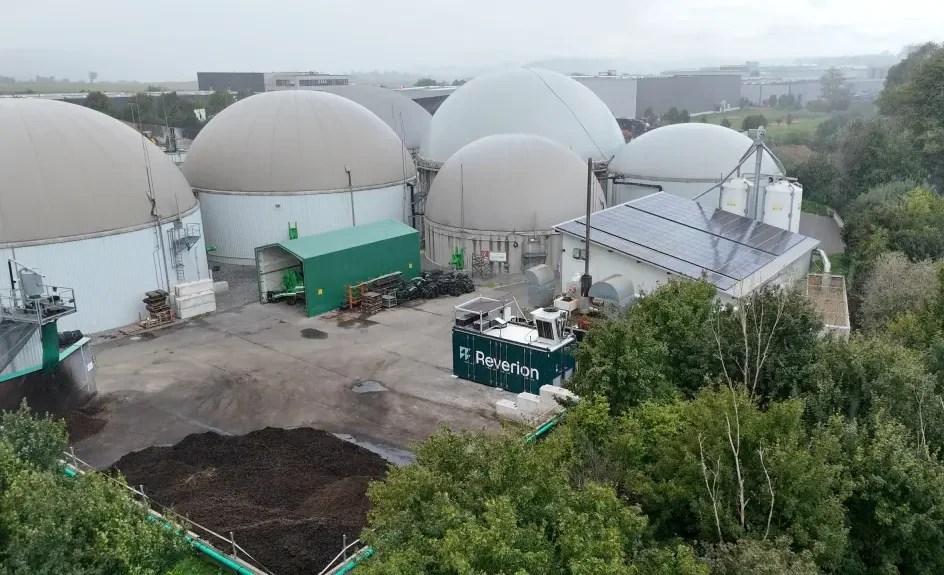Google, McKinsey and Stripe back a ‘three-in-one’ carbon removal technology
The scalable solution builds on an electricity generation system that’s in high demand from farmers. Read More

- Buyers coalition Frontier is spending $41 million to buy 96,000 tons of carbon removal from Reverion, a German startup.
- Reverion’s technology generates electricity or hydrogen from organic waste.
- The Frontier funding will allow the company to expand the system to capture and storage carbon dioxide.
Frontier, a carbon-removal buyers coalition founded by Google, McKinsey, Stripe and others, is investing $41 million in a startup that’s developed a “three-in-one” technology that can generate electricity or hydrogen while simultaneously capturing carbon dioxide.
The startup, Reverion, has already deployed its fuel cells on a handful of farms in Germany, where the cargo container-sized system uses biogas, a mixture of methane and CO2 derived from crop residues or manure, to generate electricity.
The funding from Frontier will allow the company to add equipment to capture the CO2 emitted by the waste and the electricity-generation process. The gas will then be liquified and transported by road to a carbon storage hub.
‘One of the cheapest options’
Frontier’s investment will fund removal of 96,000 tons of CO2 between 2027 and 2030.
The implied cost of the removals — $427 per ton of CO2 — is high by the standards of the voluntary carbon market, but consistent with Frontier’s mission to accelerate the development of carbon removal technology by funding early-stage projects. Frontier also requires portfolio companies to show a plausible path to selling removals at less than $100 per ton as their technologies scale.
“This is going to be one of the cheapest carbon removal options, because it is taking a pure stream of CO2 that would be there anyway,” said Hannah Bebbington Valori, Frontier’s head of deployment.
Reverion has a good chance of scaling its removals work because of demand from farmers for the electricity-generating part of the process, added Bebbington Valori: “The fact that this is a highly efficient electricity generating system that is driving revenue for farmers is a critical part of what we think is going to be Reverion’s success.”
Frontier’s progress since 2022
Bolting carbon removal technologies onto existing industrial processes is an increasingly popular strategy for a sector where capital expenditure costs are often high. Earlier this year, for example, Frontier backed two projects that capture CO2 emitted from wastewater and pulp-processing plants.
Frontier launched in 2022 with a commitment to buy an initial $1 billion of permanent carbon removal by 2030. It has since spent $670 million to fund 1.8 million tons of carbon removal.
The Reverion deal is also being backed by Shopify, H&M Group and others. Several additional companies, including Canva, Wise, and Zendesk, participated via a partnership between Frontier and Watershed, a leading provider of carbon accounting software.















